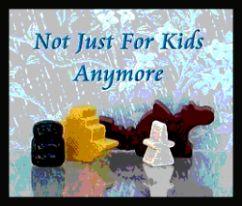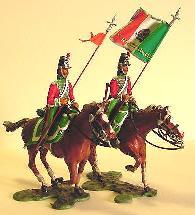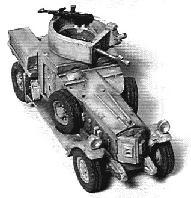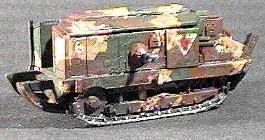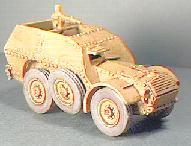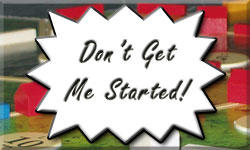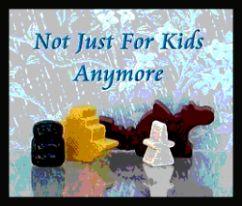On a whim I visited the F.L.C.B.S. (Friendly Local Comic Book Store) a few weeks ago to see if there was any improvement in their selection of board games. My last visit had been maybe a year or two before, and while I can't remember precisely what was sitting on the shelves then, I do know that it was uninspiring, or at least it was to me: your standard copies of Settlers of Catan, Nuclear War, and Outdoor Survival, a couple of the rare Rio Grande duds, and some dinged and shelfworn Avalanche Press wargames. This sad little huddle was wedged in a corner over to the left of the
Great Wall of Warhammer, a gorgeous and dust-free floor-to-ceiling display of little metal whatnots and doodads. Still hopeful, I
casually strolled over to the owner and
nonchalantly asked him if the side room with the big game table was ever used for playing games other than miniatures. He looked at me as if I had asked if he had any other flavors of air to breathe besides plain. "
Like what?!?" he growled.
All things change, though, and so, as I said, a few weeks ago I thought it would do me no serious harm to poke my head into the store once again and see if the tide had turned in favor of Gola. I was in for a big surprise.
Right next to the play area was now a modest but independent and thoroughly successful-looking
bookcase that was not merely
full but
chock-full of games. Fantasy Flight! Avalon Hill! Rio Grande! Days of Wonder! The really big shock was the big honkin' copy of Primordial Soup; for years this had been an obscure German-only title (as Ursuppe, of course), and so seeing those happy little protozoa now floating around the shelf of a comic book store in Newtown, CT was sort of like finding a Ming vase serving as the tip jar at the local Gulp 'n' Blow. Good for Z-Man games—they got some pretty good distribution right out of the gate.
The question hanging before me then was whether or not there was anything that I actually wanted to buy. I scanned the shelves for something inexpensive. King's Gate? Saboteur? S.P.A.N.C.? Certainly I do have a keen interest in catgirl space pirates, thanks to that undergraduate course I took in the dialectical semantics of seminaked felinofemale quantum banditry, but I just wasn't the mood for highbrow. After several minutes of hemming and hawing I gave up and got in the car.
Later when I was back at home flipping through the latest issue of
Catgirl Pirate Journal I suddenly remembered one title on the game store's shelf that I didn't really know very much about: Scarab Lords by Reiner Knizia. What was that one again? Sort of a CCG, but not really, right? I remember being turned off by the theme back when it came out (not to mention the reports of the component cheapness of Fantasy Flight's games of the time), but my admiration of Reiner Knizia has grown to the point that I am now willing to suffer dragons and furbies on flimsy cards if RK is the man behind the design. So, a day or two later I drove back to Newtown and grabbed the box.
What I found out is that Scarab Lords is actually a kick-ass little game.
The easiest way to describe the game is to say that it's sort of an advanced Schotten-Totten with a Magic: the Gathering flavor. There is a strip of board featuring seven columns, and there are two separate decks of cards, most of which have a number indicating their strength. In turn the players will lay down their cards in the columns on their side of the board in an attempt to gain supremacy of that column by having a higher total of cards; unlike Schotten-Totten, however, the column is never won once and for all but may change hands back and forth many times. One of the winning conditions is to be in control of two out of the three columns on both halves of the board at the beginning of your turn (the seventh, middle column holds the "god cards" and is not counted towards any victory condition).
One of the interesting features of the game is that the various columns will give advantages to the player who has control over them at the moment; the two green columns allow players to draw cards from their deck, the two red columns force the opponent to discard cards from his deck, and the two blue columns allow the player to neutralize his opponent's already-played cards.
Additionally, the individual cards typically have rule-bending powers that, when used at a critical juncture, can have a significant effect on a player's fortune. Add onto that various restrictions on where and when stuff can be played, and then the Scarab Lords equivalent of M:tG enchantments (god cards), and then the Scarab Lords equivalent of M:tG instants (fate cards), and you have a fairly rich and complex little game on your hands. Furthermore, if the basic game ever starts to become stale, there is the Scarab Lords equivalent of M:tG deck building, though it might more accurately be called deck tweaking. The advanced game is a best-of-three affair, and after each match players have the opportunity to swap five of the cards in their preconstructed decks with five cards from a third deck of neutral cards, with the losing player swapping first.
The thing to note at this point is that the decks are
not identical; both have their own particular strengths and weaknesses, and so swapping cards in the advanced game is not just as simple of getting rid of a 1 card for a 5. Even in the basic game players will have an advantage if they are familiar with the decks, since, just as in M:tG, you will want to accentuate your deck's strengths and take advantage of cards that work well together. For example, many of the cards in the red deck are powerful but do not have much flexibility, by which I mean they can only be placed in a particular type of column. If a red player held in his hand a bunch of smaller cards which could be placed just anywhere, he would not want to lump them all into one column which he might later be able to take quite easily with one big card.
As far as the game end goes, I've already mentioned one of the two conditions—supremacy in two out of three columns on both halves of the board—but this is misleading, because games rarely end in that fashion. The second but perhaps more typical game end condition is that your opponent's draw deck be empty at the beginning of your turn. This victory by attrition sounds a lot less satisfying than overwhelming your opponent by force, but much of the card play is directed towards this end, and it imparts an interesting rhythm to the game; in the beginning of the game you want as many cards in your hand as possible so as to get some good traction on the board, but at a certain point you have to put the brakes on and only draw when you're running low on options. The first sudden-death victory condition almost functions more as bait to get people to lock horns, even though when threatened players can usually pull off some desperate gambit to keep themselves in the game.
The theme, thankfully, is not just another trip to the Tolkien well, but instead concerns a fantasized ancient Egypt, the fantasies in question being that there are monsters and gods and spells and everyone looks Caucasian.*
So far I've played the game eight times, and most of those matches were extremely enjoyable. The feeling tends to be that of a pitched battle where threat and dominance see-saws back and forth between the opponents. It's always a challenge adapting your hand to the goals and demands of the moment, but knowledge of the two decks also plays an important role. There is tension and difficulty and moments of inspiration, and no two games play out exactly the same way. There is even some amount of long-term strategizing that is possible in the placement of the cards, and while luck does play a role I would say that over the long haul the smarter player will win the majority of games.
There were a couple of instances of games which ended unsatisfyingly, but I discovered that this was because of a missed rule—I had not noticed that players have the opportunity of skipping their turn to refill their hand back to six cards, and this resulted in two games which ended when one player could not win an economic supremacy before his hand ran out. Probably it sounds like botching this rule would have an enormous impact on the game, but except in those two cases it actually wasn't so; the fact is that the battles are always so heated that, so long as they have at least one card in hand and one economic supremacy, players rarely feel like they have the leeway to just skip their turn completely.
Unfortunately my opponent** has not wanted to play with the advanced card-swapping rules; after losing seven of eight games, he perhaps imagines that it would only be adding new and different tools with which I can beat on him. He may have a point.
Ultimately I must say that as far as two-player games go, Scarab Lords is remarkably high on my list of games to play. Due to its weight class I would rank it below most of the Gipf Project, and then possibly below Magic: the Gathering—played under perfect conditions, of course—and maybe also below Knizia's ultra-elegant
Game for the Ages Schotten-Totten, but still I prefer it to all of the Kosmos two-player games I've tried, which would include Kahuna, Starship Catan, Odin's Ravens, Hellas, and Caesar & Cleopatra (the best of the lot).
Strangely, though, Scarab Lords isn't a very well-known game (306 ratings on BGG compared to 822 for Odin's Ravens). It seemed to have gotten some fairly good initial buzz on Spielfrieks after it was released in early 2003, but this chatter eventually died out; the failure of the word to spread may have had something to do with an early withering review based on playings in which the author had missed a critical rule,*** or it may be the effect that one BGGer noted (I can't find the quote now, unfortunately) in which, on reading the rules, a player would be led to believe that a win via supremacy is the norm and a win by card depletion the exception, and so be disappointed when game after game ended with a lame backup victory condition. From my perspective, however, once a player realizes that making their opponent burn through his deck is an important strategic goal, they will start to perceive a lot of what is elegant, finely tuned and interesting about Scarab Lords.
Meanwhile, since I enjoyed Scarab Lords so much, I also ordered the sequel game, 2004's Minotaur Lords, which features improved components but somewhat lamer artwork. I've gotten to play three games of this one, and while the rules are the same, there is a tangible difference between the tone of the two games; whereas the Scarab Lords decks are somewhat generic and versatile, the Minotaur Lords decks have a more customized and specialized feel. The blue deck's strength is the infamous horde, while the red deck revolves around large buildings with complementing cards that get rid of all the pesky curse counters. The simple decks of Scarab Lords lure the players on to tweak the cards with the advanced game, but in Minotaur Lords it feels like the developers succumbed to this temptation themselves and had a little party putting together two killer decks. In fact, the red deck seems so finely tuned out of the box that it can hardly be improved by swapping cards with the neutral deck; I could maybe see someone switching some of red's god cards with Enlir cards, and maybe some of the Eternal Champions with Prophet of Jalal cards just for a laugh, but I doubt it would significantly improve his chances.
For this reason I found the Minotaur Lords decks to be slightly less enjoyable than those in Scarab Lords. Even though the Minotaur Lords decks have more character and are more challenging, the demands of the game seems to railroad players into certain patterns; blue
has to mass its hordes into the religious column to hobble red's buildings with curses, while red
has to meet the challenge by erecting its buildings in that same column and hope it can draw its uncursable zero-phase cards before it gets overwhelmed. So, while the original game plays out in a fairly complex way—similar to Schotten-Totten, one might win or lose because this card had to go there and then that decision led to that eventuality and so on—in Minotaur Lords one can sometimes feel that the game was won or lost just because there weren't enough horde cards early in the deck or because all the good curse-lifters came out before the big buildings. On the other hand, some might prefer these more challenging decks with their stronger individual flavor to the more low-key Scarab Lords decks, so I wouldn't want to write the game off completely. In fact, of the twenty people who rate both games on BGG, eleven rate the sequel as good or better than the original, so be sure to take my comments with a grain of salt.
Unfortunately, if Scarab Lords was a sleeper, Minotaur Lords is in a coma. The game has had a poor reputation from the get-go thanks to Fantasy Flight leaving out some important text on the Horde cards—their strength is equal to the number of active Horde cards in their
column, not the in the
game—an error which they didn't patch up until six months after the game was released. The howlings about unbalance must have had a fairly serious impact on sales, since even though in April of this year Fantasy Flight head honcho Christian T. Petersen announced a new installment in the series, in answer to an e-mail I sent F.F. a few weeks ago a rep said "There are no current plans for a reprint or future installments for Scarab lords." A shame, really, because as far as medium-weight two-player games go, Scarab Lords is great little offering, and I would have enjoyed following the series.****
Anyway, the game is now a new standard in my two-player arsenal, perfect for gamers who want something fast and involving but who don't cotton to the abstractness of the Gipf series. The next challenge: to see how it stands up against my newest acquisitions, the other Knizia quasi-CCG, Blue Moon, and Columbia's latest and greatest, Crusader Rex. All of the sudden having only two players is a lot more exciting....
____________________________________
* I always admired Wizards of the Coast for the great African theme of the Mirage Magic set; they really seemed to be trying to do it right and not just telling the artists to stick a gazelle somewhere in the back.
** Finally, another gamer at work! I can play games at lunch! In fact, the guy used to be a paid playtester at SPI in the seventies. He doesn't know from Eurogames, though; Fantasy flight has pictures of other products on the sides of their boxes, and while he liked the looks of Twilight Imperium, about Through the Desert he said, in maximum sarcasm mode, "well
that looks like a lot of fun." "No, no, it's a great little game," I insisted. "Yeah. Right. Whatever."
*** He did later update the review to a mildly positive one, despite mentioning the luck of the draw and the frustration of being at the pointy end of a religious supremacy.
**** Dare to dream:
Catgirl Space Pirate Lords. Now that's entertainment!
